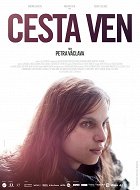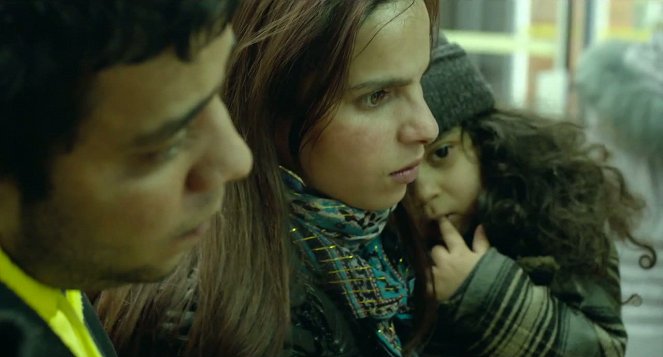Rendező:
Petr VáclavForgatókönyvíró:
Petr VáclavOperatőr:
Štěpán KučeraSzereplők:
Klaudia Dudová, David Ištok, Natálie Hlaváčová, Mária Zajacová, Milan Cifra, Sára Makulová, Přemysl Bureš, Zdeněk Godla, Julius OračkoTartalmak(1)
Taking place in the Czech Republic in 2013, Cesta Ven is the story of a young Gipsy couple who wish to live an ordinary life – something impossible for Gipsies. Alone, they lead an uneven struggle against the hostile majority that denies them the right to a decent existence. And they must protect their dignity and love. (forgalmazó hivatalos szövege)
(több)Recenziók (5)
I was very curious to watch this supposedly best Czech movie of 2014. It’s not all fun and games to try and shoot something from the world of multicultural nomads. Not only does it reflect in their way of life, which is not very understandable to most of us, but also in the poverty they live in which is awfully difficult to escape. In any case, I loved that the director Petr Václav chose fairly fresh faces and non-actors to portray this difficult theme. Because their performances in front of the camera were absolutely incredible, which really won me over. The human element was a little worse, because I found it absolutely lacking. There’s no time to be humane when we have to fight for survival. The worst thing is that you’re not only brought down by people around you that you can’t seem to get rid of, but also by your own family. The Way Out is therefore an absolutely all-telling title. I watched this for the Challenge Tour 2015.
()
A film whose major failures (dramaturgical non-disciplinaryness, didactics and acting / staging awkwardness of some scenes) are balanced by the thriftiness and accuracy of observation, the precise ability to capture depressing fragments of reality and the simple fact that a person is not only the result of social, but also psychological limits. Moreover, The Way Out is far from humanistic blackmail. The film is sometimes very funny, often relentless and just as often absorbent. A Czech film that finally repays its debt to modern social drama and leaves far behind tumultuous attempts such as My Dog Killer, El Paso or Flower Buds. The Way Out simply shows the way out, though (half-heartedly here and there) it lags behind the uncompromising verism of the Dardenn brothers and the lyrical realism of Bence Fliegauf. [80%]
()
Films from the Roma environment are based on three main approaches. The first is exotic romanticization, which is evident in some films from Western Europe, especially France (although the most typical example is probably the Soviet film Gypsies Are Found Near Heaven). The second approach tends to depict the Roma world from activist positions, emphasizing racism and portraying the community as a victim. The third approach looks at this community through the frustration of the white rose and comments on internet discussions. The Way Out tried to do things differently, striving for realism and raw presentation with what it had to work with. It doesn't always succeed, as the screenplay could have been better, but the element of authenticity is noticeable and there was a great effort here to make an honest film. It is an attempt at an honest testimony, and I value that. Overall impression: 75%.
()
Roma themes have been inherent in Czech cinema since its inception, but in recent years they have become much too common. It will probably never again have the poetry of Černý plamen, My Friend the Gypsy, or Larks on a String. Today we travel to various towns, roaming and looking for the way out. Quite surprisingly, we find that there is no way out. It's in the nature of these people, and even if there is someone among them who really tries, blood is simply stronger than water.
()
Petr Václav didn’t so much make me happy as piss me off. Although his The Way Out is very far from being tendentious and cannot be characterized in any other way than that it merely "describes or observes", when all’s said and done it is more of a psychological/family drama (from a foundation of social consciousness, of course), one that at times is unusually intimately emotional (which is why it pissed me off so much, because I was expecting something more generalizing). There were moments when I was truly not far from tears and had to repeatedly remind myself how well off I am (I went to college, I have a decent job, a car, an apartment, etc.). The only thing I had a bit of a problem with was the attractiveness of the main character (Klaudia Dudová is undoubtedly very pretty), not to mention her unusually high moral principles. Maybe it's just a result of my own limited perspective, but sometimes I found Žaneta just too cool. Otherwise, however, I would like to salute Petr Václav for how suggestively and sensitively he filmed a topic still very difficult to grasp. The non-actors didn’t bother me; on the contrary, the sometimes slightly clumsy natural acting deepened the authenticity of the work as a whole.
()

